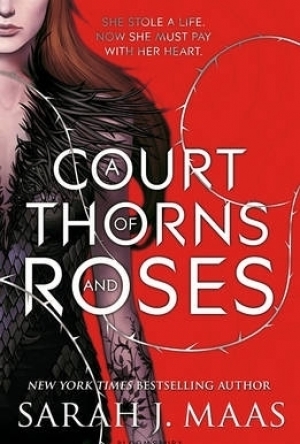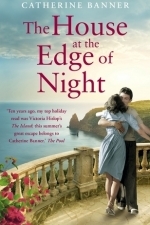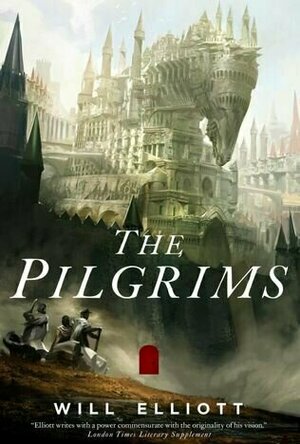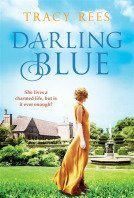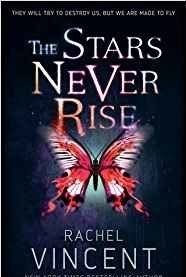Search
Search results

Murder at the Mena House
Book
Well-heeled travelers from around the world flock to the Mena House Hotel—an exotic gem in the...
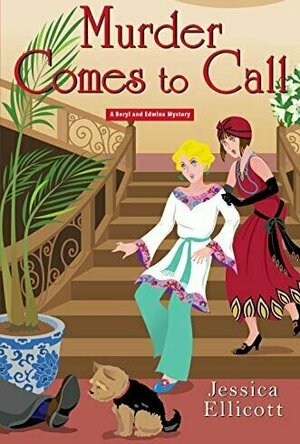
Murder Comes to Call
Book
The lean years following World War I can lead to desperate acts--even in the quiet English village...
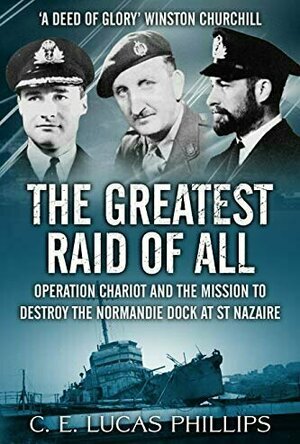
The Greatest Raid of All
Book
A vivid account of the famous St Nazaire Raid that demonstrates the sheer bravery of the British...
Kyera (8 KP) rated A Court of Thorns and Roses in Books
Jan 31, 2018
After reading the Throne of Glass series, I didn't think that I could love SJM's next series as much. How could it compare? It doesn't, but not in a bad way. While it's also a book about the Fae, a Court of Thorns and Roses is set in an entirely different world with its own set of unique characters. It is also vaguely a retelling, or reimagining, of the Beauty and the Beast fairytale, which I loved. The human and Fae worlds are separated by an invisible wall and a Treaty that was crafted after a brutal war which took place 500 years earlier.
We are first introduced to Feyre, a girl who tries to take care of her family as best she can despite being the youngest. It is on one of her trip into the forest to feed her family when she stumbles across the path of a wolf whilst hunting a deer. After shooting and killing both animals, she skins the wolf and carries the deer home for food. Unfortunately for her, the wolf was actually a Fae male and her actions force her to make a choice. Either be killed or live forevermore in the Fae realm.
It is not much of a choice and Feyre chooses to go with Tamlin to his estate in Prythian, the land of the Fae. Tamlin, she later discovers is not only a High Fae, but the Lord of the Spring Court and much more powerful than she realized. He is joined by Lucien, another High Fae who is originally from the Autumn Court and not much else besides a few workers. The large estate seems empty and a little bit sad.
As one can expect from a Beauty and the Beast retelling, the girl must fall in love with the shapeshifting Fae beast to break a curse. the curse is not known to the reader or Feyre until the end of the book. She must fight to prove her love under the most harrowing of situations and trials.
A must read, especially if you wish to find out what happens. Highly recommended for teen/young adult readers who like fantasy, supernatural creatures and magic. The world building is amazing, the magic is awe inspiring and the lands are populated by a variety of characters from the heroes to the villains, the cowards, the friends and the just plain misunderstood.
Reread Feelings:
Slight spoiler warning for ACOTAR and ACOWAR.
A second read-through of a Court of Thornes and Roses let me to notice a lot more details that I had missed during my first introduction to the world. The inspiration that the novel drew from Beauty and the Beast was also more prevalent than I had realized. Her family life and desire to protect those she loves is directly pulled and inspired by the original novel. Tamlin’s beast form and temper are also reminiscent of the Beast in the story.
Knowing how the book ends and what happens in ACOMAF, you can more clearly see the actions and personality of Tamlin. He is very protective of Feyre and a little bit controlling, but without any direct threat to her life it is not as apparent. The events that occurred Under the Mountain pushed him over the edge and turned that protectiveness dark. It became corrupted and too strong to be overlooked. He also has an explosive temper and anger, but you see it less frequently as the book goes on. That doesn’t mean it goes away, so his personality in the second book is not as surprising as I thought it was my first time reading the series. It still like him in this series, but I don’t love him as much as I did during the first read through.
The incredible world of Prythian is just so packed with different faeries, Courts, and intense story that you can’t focus on everything the first time you read it. You discover more magic the second, or third, time you read through the book because you know the story and can now also focus on the read of the world building and character development. To me, that is fantastic writing when you can always discover something new hidden in a book you love.
I fell in love with the series even more on the second read-through, especially Rhysand. You truly appreciate just how much he did for Feyre, not just healing her arm when she was on death’s door but mentally and emotionally supporting her when she was ready to give up. He puts on a dark front, but his every action belies his true feelings. Rhys lies to Amarantha about the identity of Tamlin’s human love, even though it could mean his end and his people’s if she discovers the truth. On multiple occasions, he plays the bad guy to maintain a façade but secretly does good. I appreciated and recognized his acts a lot more the second time reading, and it made me fall in love with his character even more.
Even though I know what happens in the book, the emotions are still so prevalent. You ride the story’s highs and lows, feel yourself filling with light when there is goodness, and fear for the dark. I can’t even describe my feelings. I was walking around my room reading the final pages as Feyre is being hurt – and someone calls out her name. I just sort of collapsed to the ground, with my hand on my heart and my feelings bursting from my chest about that particular Fae male. You could almost hear the pain and horror in his voice as he cried out for her, and it destroyed me. The final moments of the book were so beautiful and made me a little teary.
We are first introduced to Feyre, a girl who tries to take care of her family as best she can despite being the youngest. It is on one of her trip into the forest to feed her family when she stumbles across the path of a wolf whilst hunting a deer. After shooting and killing both animals, she skins the wolf and carries the deer home for food. Unfortunately for her, the wolf was actually a Fae male and her actions force her to make a choice. Either be killed or live forevermore in the Fae realm.
It is not much of a choice and Feyre chooses to go with Tamlin to his estate in Prythian, the land of the Fae. Tamlin, she later discovers is not only a High Fae, but the Lord of the Spring Court and much more powerful than she realized. He is joined by Lucien, another High Fae who is originally from the Autumn Court and not much else besides a few workers. The large estate seems empty and a little bit sad.
As one can expect from a Beauty and the Beast retelling, the girl must fall in love with the shapeshifting Fae beast to break a curse. the curse is not known to the reader or Feyre until the end of the book. She must fight to prove her love under the most harrowing of situations and trials.
A must read, especially if you wish to find out what happens. Highly recommended for teen/young adult readers who like fantasy, supernatural creatures and magic. The world building is amazing, the magic is awe inspiring and the lands are populated by a variety of characters from the heroes to the villains, the cowards, the friends and the just plain misunderstood.
Reread Feelings:
Slight spoiler warning for ACOTAR and ACOWAR.
A second read-through of a Court of Thornes and Roses let me to notice a lot more details that I had missed during my first introduction to the world. The inspiration that the novel drew from Beauty and the Beast was also more prevalent than I had realized. Her family life and desire to protect those she loves is directly pulled and inspired by the original novel. Tamlin’s beast form and temper are also reminiscent of the Beast in the story.
Knowing how the book ends and what happens in ACOMAF, you can more clearly see the actions and personality of Tamlin. He is very protective of Feyre and a little bit controlling, but without any direct threat to her life it is not as apparent. The events that occurred Under the Mountain pushed him over the edge and turned that protectiveness dark. It became corrupted and too strong to be overlooked. He also has an explosive temper and anger, but you see it less frequently as the book goes on. That doesn’t mean it goes away, so his personality in the second book is not as surprising as I thought it was my first time reading the series. It still like him in this series, but I don’t love him as much as I did during the first read through.
The incredible world of Prythian is just so packed with different faeries, Courts, and intense story that you can’t focus on everything the first time you read it. You discover more magic the second, or third, time you read through the book because you know the story and can now also focus on the read of the world building and character development. To me, that is fantastic writing when you can always discover something new hidden in a book you love.
I fell in love with the series even more on the second read-through, especially Rhysand. You truly appreciate just how much he did for Feyre, not just healing her arm when she was on death’s door but mentally and emotionally supporting her when she was ready to give up. He puts on a dark front, but his every action belies his true feelings. Rhys lies to Amarantha about the identity of Tamlin’s human love, even though it could mean his end and his people’s if she discovers the truth. On multiple occasions, he plays the bad guy to maintain a façade but secretly does good. I appreciated and recognized his acts a lot more the second time reading, and it made me fall in love with his character even more.
Even though I know what happens in the book, the emotions are still so prevalent. You ride the story’s highs and lows, feel yourself filling with light when there is goodness, and fear for the dark. I can’t even describe my feelings. I was walking around my room reading the final pages as Feyre is being hurt – and someone calls out her name. I just sort of collapsed to the ground, with my hand on my heart and my feelings bursting from my chest about that particular Fae male. You could almost hear the pain and horror in his voice as he cried out for her, and it destroyed me. The final moments of the book were so beautiful and made me a little teary.
Lee (2222 KP) rated Wonder Woman (2017) in Movies
Jul 14, 2017
After a pretty lengthy drought, we finally get another decent DC movie
As the DC TV universe continues to go from strength to strength, the DC movie universe is gradually going downhill. Don’t get me wrong, I really liked Man of Steel, despite the overloaded CGI destruction at the end. I didn’t mind Batman Vs Superman either, even with Jesse Eisenberg doing his very best to try and ruin it. But, despite successfully introducing two other major DC heavyweight characters (and not so successfully introducing a few others) and picking up steam in the final act, the movie struggled. Suicide Squad then managed to take bad to a completely new level, and was just a complete train-wreck.
Batman Vs Superman was our first introduction to Wonder Woman in the DC movie universe, and she was the most entertaining and promising aspect of the whole movie. As a child of the 70s, I grew up watching and enjoying the Wonder Woman TV show, along with re-runs of the Batman 60s show and of course the Christopher Reeve Superman movies. After all these years of countless Batman and Superman movies, it was great to not only see Wonder Woman finally on the big screen, but also to see her being portrayed so well. Now, with her standalone movie coming out a few months before the mediocre looking Justice League movie, this is not only an important movie for DC but also an important first step in finally bringing strong female superheroes to the big screen. Paving the way for Captain Marvel, a Black Widow standalone movie, and more. This had to be good.
Thankfully, it is. Although there’s still a long way to go in order to reach the level that Marvel already managed to achieve many movies ago, this is indeed a serious step up for DC. Opening with a brief scene set in present day, Wonder Woman then takes us back to Themyscira. A paradise island, hidden from view from the rest of the world, where a young Diana lives peacefully among her Amazon tribe. Despite their peaceful existence though, the Amazons are constantly preparing themselves for the return of Ares, God of War. Archery and combat training is undertaken daily on the island, under the guidance of Dianas aunt, General Antiope (Robin Wright). Diana is keen to train too and her reluctant mother, Queen Hippolyta (Connie Nielsen), eventually agrees, requesting that General Antiope train her hard and make her the best. As Diana grows into a woman, training has clearly gone well and she’s even managing to give her aunt a good run for her money! Just in time too as World War 1 pilot Steve Trevor (Chris Pine) crashes through the invisible barrier cloaking the island and crash lands into the sea, closely followed by a bunch of Germans who are on his tail. Time for the Amazon women to put their training to good use, but not without some casualties…
Steve tells Diana of the great war that’s raging throughout the world and Diana believes this to be the return of Ares. She decides to leave her home and travel with Steve to put an end to Ares once and for all. So, she grabs her shield and lasso of truth and ‘borrows’ the sacred ‘God Killer’ sword from the tower it rests in and off they go. Leaving behind the bright, vibrant island of Themyscira and returning to the traditional, dark grey pallet of colours that we’re used to seeing in our DC movies as they head to war-torn London.
Steve takes over as charming tour guide as Diana enters the human world for the first time. Her innocence and curiosity of the modern world are played beautifully by Gadot, with plenty of fish-out-of-water style humour too. But she’s also never afraid to question and stand up for what she believes in and tackle those who try and oppose her, giving an interesting perspective on aspects of humanity which deserve to be questioned. Her drive to get to the front-line of war, to seek out Ares and supposedly end all war by defeating him, constantly driving her forward. Romance eventually blossoms between Diana and Steve, but it feels natural and believable and helps to hold the movie together during some of its slower moments.
When Wonder Woman manages to get to the front line and steps out into no-mans land, ignoring the advice of Steve and those around her, it’s magnificent. It heralds the first in a series of magnificent action sequences involving German soldiers as she puts her training to good use. Initially shielding herself from the onslaught of bullets before moving onto the offensive with some bad-ass combat moves, slo-mo back-flips, jumps, whip action and displays of pure power and strength. Everything we got a glimpse of in Batman Vs Superman, ramped up to the max, perfectly executed and accompanied by a rocking soundtrack!
Where Wonder Woman doesn’t work so well is in the handling of its villains. Whenever we switch to General Ludendorff and Doctor Poison, busily developing deadly gases to unleash, momentum seems to be lost. And as for Ares, when we do finally meet him he’s pretty laughable, with no clearly defined motivation or character. Following a bit of villain monologue, we get the general gist of what his beef is and then the last 20 minutes or so descend into the over the top CG destruction that we’re so used to seeing now in these movies. It’s a minor gripe, and not handled as badly as some previous movies, but along with the pacing issues it does affect the overall enjoyment of the movie somewhat.
None of this detracts from Wonder Woman herself though. Gal Gadot has truly made this role her own and displays the perfect mix of strength, beauty, brains, confidence, determination and general all-round girl power. She can more than hold her own in the DC universe and should hopefully be a prominent force in the upcoming Justice League movie and beyond.
Batman Vs Superman was our first introduction to Wonder Woman in the DC movie universe, and she was the most entertaining and promising aspect of the whole movie. As a child of the 70s, I grew up watching and enjoying the Wonder Woman TV show, along with re-runs of the Batman 60s show and of course the Christopher Reeve Superman movies. After all these years of countless Batman and Superman movies, it was great to not only see Wonder Woman finally on the big screen, but also to see her being portrayed so well. Now, with her standalone movie coming out a few months before the mediocre looking Justice League movie, this is not only an important movie for DC but also an important first step in finally bringing strong female superheroes to the big screen. Paving the way for Captain Marvel, a Black Widow standalone movie, and more. This had to be good.
Thankfully, it is. Although there’s still a long way to go in order to reach the level that Marvel already managed to achieve many movies ago, this is indeed a serious step up for DC. Opening with a brief scene set in present day, Wonder Woman then takes us back to Themyscira. A paradise island, hidden from view from the rest of the world, where a young Diana lives peacefully among her Amazon tribe. Despite their peaceful existence though, the Amazons are constantly preparing themselves for the return of Ares, God of War. Archery and combat training is undertaken daily on the island, under the guidance of Dianas aunt, General Antiope (Robin Wright). Diana is keen to train too and her reluctant mother, Queen Hippolyta (Connie Nielsen), eventually agrees, requesting that General Antiope train her hard and make her the best. As Diana grows into a woman, training has clearly gone well and she’s even managing to give her aunt a good run for her money! Just in time too as World War 1 pilot Steve Trevor (Chris Pine) crashes through the invisible barrier cloaking the island and crash lands into the sea, closely followed by a bunch of Germans who are on his tail. Time for the Amazon women to put their training to good use, but not without some casualties…
Steve tells Diana of the great war that’s raging throughout the world and Diana believes this to be the return of Ares. She decides to leave her home and travel with Steve to put an end to Ares once and for all. So, she grabs her shield and lasso of truth and ‘borrows’ the sacred ‘God Killer’ sword from the tower it rests in and off they go. Leaving behind the bright, vibrant island of Themyscira and returning to the traditional, dark grey pallet of colours that we’re used to seeing in our DC movies as they head to war-torn London.
Steve takes over as charming tour guide as Diana enters the human world for the first time. Her innocence and curiosity of the modern world are played beautifully by Gadot, with plenty of fish-out-of-water style humour too. But she’s also never afraid to question and stand up for what she believes in and tackle those who try and oppose her, giving an interesting perspective on aspects of humanity which deserve to be questioned. Her drive to get to the front-line of war, to seek out Ares and supposedly end all war by defeating him, constantly driving her forward. Romance eventually blossoms between Diana and Steve, but it feels natural and believable and helps to hold the movie together during some of its slower moments.
When Wonder Woman manages to get to the front line and steps out into no-mans land, ignoring the advice of Steve and those around her, it’s magnificent. It heralds the first in a series of magnificent action sequences involving German soldiers as she puts her training to good use. Initially shielding herself from the onslaught of bullets before moving onto the offensive with some bad-ass combat moves, slo-mo back-flips, jumps, whip action and displays of pure power and strength. Everything we got a glimpse of in Batman Vs Superman, ramped up to the max, perfectly executed and accompanied by a rocking soundtrack!
Where Wonder Woman doesn’t work so well is in the handling of its villains. Whenever we switch to General Ludendorff and Doctor Poison, busily developing deadly gases to unleash, momentum seems to be lost. And as for Ares, when we do finally meet him he’s pretty laughable, with no clearly defined motivation or character. Following a bit of villain monologue, we get the general gist of what his beef is and then the last 20 minutes or so descend into the over the top CG destruction that we’re so used to seeing now in these movies. It’s a minor gripe, and not handled as badly as some previous movies, but along with the pacing issues it does affect the overall enjoyment of the movie somewhat.
None of this detracts from Wonder Woman herself though. Gal Gadot has truly made this role her own and displays the perfect mix of strength, beauty, brains, confidence, determination and general all-round girl power. She can more than hold her own in the DC universe and should hopefully be a prominent force in the upcoming Justice League movie and beyond.
Hazel (1853 KP) rated The House at the Edge of the Night in Books
Oct 20, 2017
For Victoria Hislop fans
I received this book for free through Goodreads First Reads.
Castellamare, a small island off the south coast of Italy, is the perfect setting for a captivating epic tale that traces a family from the beginning of the 1900s until the more recent year of 2009. Centred at the island’s only bar ‘The House at the Edge of the Night’, the island inhabitants suffer through two world wars, fascism, tourism and recession, however, the bar determinedly stays standing. But what happens in the rest of the world is largely ignored by the island dwellers that prefer to come to the bar to learn about friendships, betrayals and love affairs.
The House at the Edge of the Night begins on the mainland where the Dr Esposito removes the foundling Amadeo from care. Following in his foster father’s footsteps, Amadea Esposito trains to be a doctor and eventually lands himself a position on Castellamare. Having never had a doctor on the island before, Amadeo is welcomed by almost everyone, however, an illicit affair puts an end to his career. Fortunately, The House at the End of the Night provides Amadeo with an income and a home for his new wife, Pina, and his four children.
The story takes the reader through the Second World War, something that is interesting to read from the Italian’s point of view. Rejecting fascism, the Islanders are enraged when their boys are called up to join the war, especially as many, including Amadeo’s three boys, never return. With only a daughter, Maria-Grazia, remaining, the Esposito’s keep the bar going for lack of anything better to do.
But war brings good things as well as bad. Washed up on sure, the British soldier Robert brings good luck to the superstitious villagers, eventually marrying the lovely Maria-Grazia. The story continues through the childhood of their unruly boys, coming to an end as their granddaughter reaches adulthood.
A doctor and a barman, Amadeo also had a love for stories. Listening to his patients and patrons fantastical tales, Amadeo keeps note of them all in his personal notebook. Split into five parts, the book contains a story at the beginning of each section that, although mythical, set the scene for the subsequent narrative.
Alienated from the rest of the world, the Islanders are stuck in their ways, attributing any luck – good and bad – to their patron saint, Sant’Agata. Whenever life gets tough, the people on Castellamare turn to prayer, which although is part of their Catholic faith, often comes across as superstitious and irrational. They refuse to believe any logical explanation, preferring to regard their island as a magical, preternatural site.
There is no specific storyline with the usual climax and conclusion; instead, it works as a biography of a fictional family. It is interesting to regard the impact of the rapidly developing world on the island, from the introduction of a building society and the eventual launch of the Europe – something that the Islanders are naturally against. The inhabitants of Castellamare come across as naïve, but their backgrounds and beliefs are far more interesting than the average person.
The House at the Edge of the Night is a story of stories. It provides more than to be expected from a novel. Catherine Banner writes of beautiful settings, compelling characters and fascinating events that both amuse and entertain in a moving way.
With Victoria Hislop’s novels such as The Island being all the rage amongst many female readers, Catherine Banner’s The House at the Edge of the Night is destined for success. It is a great book to read on holiday or at home, and perfect for book clubs. This book is the ideal escape from the stresses of everyday life.
Castellamare, a small island off the south coast of Italy, is the perfect setting for a captivating epic tale that traces a family from the beginning of the 1900s until the more recent year of 2009. Centred at the island’s only bar ‘The House at the Edge of the Night’, the island inhabitants suffer through two world wars, fascism, tourism and recession, however, the bar determinedly stays standing. But what happens in the rest of the world is largely ignored by the island dwellers that prefer to come to the bar to learn about friendships, betrayals and love affairs.
The House at the Edge of the Night begins on the mainland where the Dr Esposito removes the foundling Amadeo from care. Following in his foster father’s footsteps, Amadea Esposito trains to be a doctor and eventually lands himself a position on Castellamare. Having never had a doctor on the island before, Amadeo is welcomed by almost everyone, however, an illicit affair puts an end to his career. Fortunately, The House at the End of the Night provides Amadeo with an income and a home for his new wife, Pina, and his four children.
The story takes the reader through the Second World War, something that is interesting to read from the Italian’s point of view. Rejecting fascism, the Islanders are enraged when their boys are called up to join the war, especially as many, including Amadeo’s three boys, never return. With only a daughter, Maria-Grazia, remaining, the Esposito’s keep the bar going for lack of anything better to do.
But war brings good things as well as bad. Washed up on sure, the British soldier Robert brings good luck to the superstitious villagers, eventually marrying the lovely Maria-Grazia. The story continues through the childhood of their unruly boys, coming to an end as their granddaughter reaches adulthood.
A doctor and a barman, Amadeo also had a love for stories. Listening to his patients and patrons fantastical tales, Amadeo keeps note of them all in his personal notebook. Split into five parts, the book contains a story at the beginning of each section that, although mythical, set the scene for the subsequent narrative.
Alienated from the rest of the world, the Islanders are stuck in their ways, attributing any luck – good and bad – to their patron saint, Sant’Agata. Whenever life gets tough, the people on Castellamare turn to prayer, which although is part of their Catholic faith, often comes across as superstitious and irrational. They refuse to believe any logical explanation, preferring to regard their island as a magical, preternatural site.
There is no specific storyline with the usual climax and conclusion; instead, it works as a biography of a fictional family. It is interesting to regard the impact of the rapidly developing world on the island, from the introduction of a building society and the eventual launch of the Europe – something that the Islanders are naturally against. The inhabitants of Castellamare come across as naïve, but their backgrounds and beliefs are far more interesting than the average person.
The House at the Edge of the Night is a story of stories. It provides more than to be expected from a novel. Catherine Banner writes of beautiful settings, compelling characters and fascinating events that both amuse and entertain in a moving way.
With Victoria Hislop’s novels such as The Island being all the rage amongst many female readers, Catherine Banner’s The House at the Edge of the Night is destined for success. It is a great book to read on holiday or at home, and perfect for book clubs. This book is the ideal escape from the stresses of everyday life.
Phil Leader (619 KP) rated The Pilgrims (Pendulum #1) in Books
Nov 25, 2019
The Pilgrims is the second book by Will Elliott and the first in the Pendulum trilogy. It follows Eric (a down on his luck journalist) and Case (an old vagrant that Eric befriends) who discover that a small door under a bridge leads to a different world.
The story follows them as they travel across this new land of Levaal and encounters various inhabitants - human and other races. There has been a war simmering between The Castle - ruled by the (not to beat about the bush) insane Vous - and a coalition of still-free cities governed by their respective mayors. Eric and Case arrive just as the war is about to become a full battle, and it's clear that this is not a coincidence.
I'm always wary of fantasy books where people cross from this world into the world of the writer's imagination, it always seems like a bit of a fanboy's wet dream and sometimes it isn't handled well and leaves a lot of holes. Elliott does adequately well in addressing these - Eric (at least) does not cross by accident, the magic that brings them to the world allows them to speak the correct language and so on. Elliott also wisely immediately plunges the antagonists into action, revealing the wonders of Levaal rather than letting them frolic on some untouched green hillside.
The other notable deviation from this being any sort of wish fulfillment fantasy is that Levaal actually isn't very.... nice. Danger, intrigue and double dealing abound. Vous could be nominally labelled as the 'bad guy' but it's clearly described that he is doing what are bad things for what he considers the right reasons. There are no 'dark lords' here and by the same token the 'good guys' really aren't particularly good.
Eric and Case are not spared from this. Neither is a paragon of virtue, Eric has some distinct character flaws, which are made very clear to him by other characters and perhaps at least some of the arc of the trilogy will be Eric becoming a 'better' person. Case has served time in prison for murder and is an alcoholic, the latter fact makes him behave erratically at best.
The inhabitants of Levaal do not deviate far from stock fantasy races, but all are unique and the world does seem to fit together and work quite well as a 'real' place, I did like the mechanism of how the magic worked and its limitations. Elliott has really put some thought into this.
The writing is hard to find fault with; the descriptive passages have real atmosphere, the dialogue is sharp and always in keeping with the characters, which in themselves are complex and nobody is represented as a cipher or standard trope. The story is engaging and moves at a terrific pace, covering a lot of ground (both metaphorically and across Levaal).
The ending is a real cliff hanger with a sting in the tail and it will be interesting to see where the story goes in the next volume, Shadow.
Highly recommended, though not for younger readers due to explicit sexual references.
The story follows them as they travel across this new land of Levaal and encounters various inhabitants - human and other races. There has been a war simmering between The Castle - ruled by the (not to beat about the bush) insane Vous - and a coalition of still-free cities governed by their respective mayors. Eric and Case arrive just as the war is about to become a full battle, and it's clear that this is not a coincidence.
I'm always wary of fantasy books where people cross from this world into the world of the writer's imagination, it always seems like a bit of a fanboy's wet dream and sometimes it isn't handled well and leaves a lot of holes. Elliott does adequately well in addressing these - Eric (at least) does not cross by accident, the magic that brings them to the world allows them to speak the correct language and so on. Elliott also wisely immediately plunges the antagonists into action, revealing the wonders of Levaal rather than letting them frolic on some untouched green hillside.
The other notable deviation from this being any sort of wish fulfillment fantasy is that Levaal actually isn't very.... nice. Danger, intrigue and double dealing abound. Vous could be nominally labelled as the 'bad guy' but it's clearly described that he is doing what are bad things for what he considers the right reasons. There are no 'dark lords' here and by the same token the 'good guys' really aren't particularly good.
Eric and Case are not spared from this. Neither is a paragon of virtue, Eric has some distinct character flaws, which are made very clear to him by other characters and perhaps at least some of the arc of the trilogy will be Eric becoming a 'better' person. Case has served time in prison for murder and is an alcoholic, the latter fact makes him behave erratically at best.
The inhabitants of Levaal do not deviate far from stock fantasy races, but all are unique and the world does seem to fit together and work quite well as a 'real' place, I did like the mechanism of how the magic worked and its limitations. Elliott has really put some thought into this.
The writing is hard to find fault with; the descriptive passages have real atmosphere, the dialogue is sharp and always in keeping with the characters, which in themselves are complex and nobody is represented as a cipher or standard trope. The story is engaging and moves at a terrific pace, covering a lot of ground (both metaphorically and across Levaal).
The ending is a real cliff hanger with a sting in the tail and it will be interesting to see where the story goes in the next volume, Shadow.
Highly recommended, though not for younger readers due to explicit sexual references.
MaryAnn (14 KP) rated A Promise Forged (Ohio Brides #3) in Books
Mar 5, 2019
Kat transformed in front of him. Her chin came up, her fingers stopped twitching with the fabric of her gown, and a real sparkle bubbled in her eyes. It was like watching Snow White come to life when the prince kissed her. A heartwarming WWII historical from award-winning author Cara Putman: Kat Miller has dreamed of playing baseball her entire life. When she earns a spot on a team in the All-American Girls Professional Softball League, she finds that things aren’t as glamorous as she imagined. She struggles with long road trips, grueling practices, and older teammates who are jealous of her success. And to top it all off, an irritating reporter is constantly getting under Kat’s skin. Events in Jack Raymond’s career have left him cynical and distanced from God. He never wanted to write at a small paper, and he certainly didn’t want to be assigned to something as inconsequential as a women’s softball team. Then Kat walks into his life. The fiery, young softball player somehow climbs the walls around his heart and makes him want to hope again. When lies fly and the league appears to fail, will Kat and Jack’s new love survive?
My Thoughts: Every girl has a dream, and this time it's Kat's turn to have hers come true! A chance to play professional baseball. Cara Putman has weaved history and fiction in an entertaining storyline; s based the all women's league that was formed during the second world war.
Kat is the youngest member on the team and as I read the book, I wanted to take her under my wing and protect her from her jealous teammates. Kat had to suffer being away from her family, the jealousy of some of her teammates, traveling, grueling schedules and falling in love for the first time.
This was a very entertaining novel. I truly enjoyed it and it was a pleasure to read. One of the things I enjoyed about the book, was that Kat wanted to make a difference. She wanted to be a light for the Lord where ever she went. Her actions actually made Jack turn back to the Lord.
Even though I hadn't read the first two books, this was easy to follow on its own. I would love to read more from Cara Putman.
My Thoughts: Every girl has a dream, and this time it's Kat's turn to have hers come true! A chance to play professional baseball. Cara Putman has weaved history and fiction in an entertaining storyline; s based the all women's league that was formed during the second world war.
Kat is the youngest member on the team and as I read the book, I wanted to take her under my wing and protect her from her jealous teammates. Kat had to suffer being away from her family, the jealousy of some of her teammates, traveling, grueling schedules and falling in love for the first time.
This was a very entertaining novel. I truly enjoyed it and it was a pleasure to read. One of the things I enjoyed about the book, was that Kat wanted to make a difference. She wanted to be a light for the Lord where ever she went. Her actions actually made Jack turn back to the Lord.
Even though I hadn't read the first two books, this was easy to follow on its own. I would love to read more from Cara Putman.
ClareR (6101 KP) rated Darling Blue in Books
Jul 30, 2018
A little light reading.
Set in the 1920's, the Darling Blue of the title is the main character in this book and follows the lives of not just Blue, but that of her family and friends. Blue's father, on the eve of her 21st birthday party, makes an announcement that Blue will marry the man who sends her a letter that she can fall in love with. She goes on to receive three letters, and some of the novel is about this search for a husband.
Blue also helps to save a woman, Delphine, from drowning in the Thames. She learns that she is in fact escaping an abusive husband. Blue's family take her in and help her. Everything seems perfect until, of course, it isn't.
It's a very bright and breezy book, filled with the hope that everyone must have felt after World War 1, but it all seemed contrived to me. Even the unpleasant 'stuff' seemed glossed over and hurried, and it didn't seem to be taken very seriously. The characters, particularly Blue's father, seemed to have very progressive opinions on certain things. Very modern, late 20th century opinions, in fact. I wonder if a character such as his would really have existed? He seemed to be very understanding of one particular plot twist which involved him and his wife, which I feel that even a man (or anyone else for that matter) today would have really struggled with. And the ending was just far too rushed and 'happily ever after'. It's a shame, because I really enjoyed the only other Tracy Rees book I've read (Amy Snow). I'll probably have to have a look at the other two books she has written between Amy Snow and this one, and see whether this is a blip. I hope so, because Amy Snow really did show promise.
Thanks to The Pigeonhole and to the author for a chance to read along with her.
Blue also helps to save a woman, Delphine, from drowning in the Thames. She learns that she is in fact escaping an abusive husband. Blue's family take her in and help her. Everything seems perfect until, of course, it isn't.
It's a very bright and breezy book, filled with the hope that everyone must have felt after World War 1, but it all seemed contrived to me. Even the unpleasant 'stuff' seemed glossed over and hurried, and it didn't seem to be taken very seriously. The characters, particularly Blue's father, seemed to have very progressive opinions on certain things. Very modern, late 20th century opinions, in fact. I wonder if a character such as his would really have existed? He seemed to be very understanding of one particular plot twist which involved him and his wife, which I feel that even a man (or anyone else for that matter) today would have really struggled with. And the ending was just far too rushed and 'happily ever after'. It's a shame, because I really enjoyed the only other Tracy Rees book I've read (Amy Snow). I'll probably have to have a look at the other two books she has written between Amy Snow and this one, and see whether this is a blip. I hope so, because Amy Snow really did show promise.
Thanks to The Pigeonhole and to the author for a chance to read along with her.
Hazel (1853 KP) rated The Stars Never Rise (The Stars Never Rise, #1) in Books
Dec 17, 2018
<i>This ARC was provided by the publisher via NetGalley in exchange for an honest
The Stars Never Rise</i> is the first book in an exciting new dystopian series. Since the war, the rise of soul sucking demons has been reduced, but instead of worrying about the remaining few, Nina Kane spends her time trying to provide food and clothing for herself and her younger sister Melanie. That is until she comes face to face with a demon – a degenerate – that she barely escapes from. Believing that it was a one off encounter and that she is safe within the walled in town of New Temperance run by the Unified Church, Nina turns her focus back to her sister who has her own troubles.
Before Nina gets the chance to help Melanie try to resolve her problem she encounters her second demon in the physical form of someone she has known all her life. While trying to protect herself, Nina unleashes a power she never knew she had. She is an exorcist who can rid bodies of demons, however the Church paints her as a wanted person with suspicions of being possessed.
The story gets exciting when Nina meets Finn, a fugitive, and his friends who help her to escape from the clutches of the Church. The mysterious Finn reveals the truth about Nina’s abilities and the lies the Church want people to believe. Within twenty-four hours the world is no longer the place Nina knew it to be.
Rachel Vincent has filled this book with lots of original ideas from her interpretation of demons to the character Finn, who is not human in the traditional sense. Not only does the story have fantasy/supernatural themes, it also deals with other more realistic issues such as poverty and teenage pregnancy.
<i>The Stars Never Rise</i> is bound to make an impression in the young adult market and become popular with dystopian lovers of all ages. Those who love this book will be eagerly awaiting the next in the series.
The Stars Never Rise</i> is the first book in an exciting new dystopian series. Since the war, the rise of soul sucking demons has been reduced, but instead of worrying about the remaining few, Nina Kane spends her time trying to provide food and clothing for herself and her younger sister Melanie. That is until she comes face to face with a demon – a degenerate – that she barely escapes from. Believing that it was a one off encounter and that she is safe within the walled in town of New Temperance run by the Unified Church, Nina turns her focus back to her sister who has her own troubles.
Before Nina gets the chance to help Melanie try to resolve her problem she encounters her second demon in the physical form of someone she has known all her life. While trying to protect herself, Nina unleashes a power she never knew she had. She is an exorcist who can rid bodies of demons, however the Church paints her as a wanted person with suspicions of being possessed.
The story gets exciting when Nina meets Finn, a fugitive, and his friends who help her to escape from the clutches of the Church. The mysterious Finn reveals the truth about Nina’s abilities and the lies the Church want people to believe. Within twenty-four hours the world is no longer the place Nina knew it to be.
Rachel Vincent has filled this book with lots of original ideas from her interpretation of demons to the character Finn, who is not human in the traditional sense. Not only does the story have fantasy/supernatural themes, it also deals with other more realistic issues such as poverty and teenage pregnancy.
<i>The Stars Never Rise</i> is bound to make an impression in the young adult market and become popular with dystopian lovers of all ages. Those who love this book will be eagerly awaiting the next in the series.
